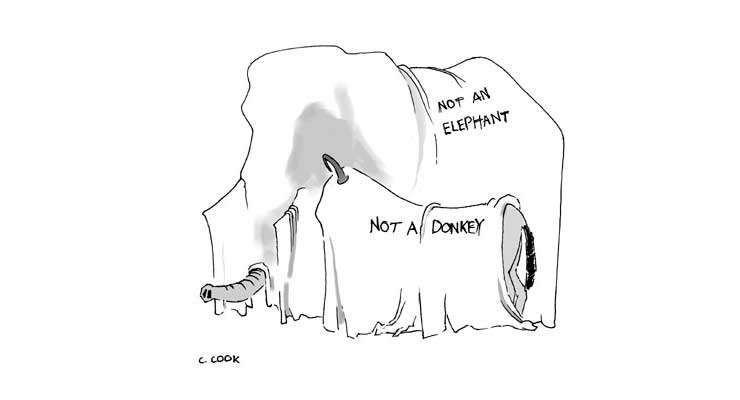
Partisan elections and political fundraising focus of West Virginia judicial election controversy
Democracy, elections and voting at Democracy Chronicles
West Virginia is not going to have non-partisan elections for judges. In non-partisan elections, candidate party affiliation isn’t listed anywhere on the ballot. This is the latest from a post in the Washington Times:
Citing technical problems, Gov. Earl Ray Tomblin has vetoed a bill making elections nonpartisan for magistrates and judges, including state Supreme Court justices. The change would apply to the Supreme Court, magistrates, circuit courts and family courts. The elections would take place during the May primary.
Republicans have said West Virginia is one of seven states with judges elected on partisan lines. Several Republicans said the bill, at the least, would remove the appearance of partisan bias in judges. Democratic Del. Tim Manchin has said the bill failed to remove campaign contributions from judicial elections, which he considers a bigger problem.
The Republican-led Legislature still has time to correct the technical concerns. The 60-day session ends March 14. Tomblin has vetoed five bills so far this year for technical errors.
The following short explanation of the proposal is by Hoppy Kercheval writing in Hoppy’s Commentary section on WV MetroNews. According to his bio, Hoppy is known as the “The radio ‘dean’ of West Virginia broadcasters”. Take a look, this was written before the law was passed in the West Virginia Senate:
The very first line in the preamble of the State Code of Judicial Conduct reads, “Our legal system is based on the principle that an independent (emphasis added), fair and competent judiciary will interpret and apply the laws that govern us.” Yet the very first thing most candidates for judicial office do is declare their affiliation to a political party. That action, though perhaps only symbolic for many, chips away at the fundamental concept of an autonomous judiciary.
States have a variety of methods of choosing judges, but 18 of them have non-partisan judicial elections at all levels. That’s what’s proposed in HB 2010, which cleared the House of Delegates 90-9-1 and is now up for consideration in the Senate.
Leave a Reply